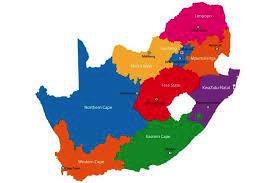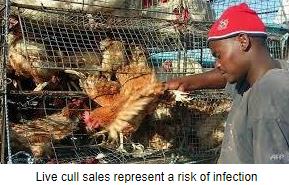According to USDA-FAS GAIN Report SF2023.0034 released on October 11th, the avian influenza situation in the Republic of South Africa is deteriorating. In addition to H5N1 presumably introduced by migratory birds, commercial flocks are now infected with H7N6 HPAI. This strain has emerged in the Western Cape province having been introduced from infected flocks in Gauteng, Limpopo, Free State and Mpumalanga provinces.

The egg industry has lost close to seven million hens representing 26 percent of the national flock over a year. The egg production sector has been disproportionately impacted compared to broilers despite commonality in location of farms. This may, in part, be due to lower standards of biosecurity on egg-production units including the sale of live culls directly from farms in addition to other deficiencies in structural installations and operational procedures to protect flocks.
The Director of Animal Health and State Veterinarian, Dr. Noluvuya Magadla, issued but irrelevant textbook recommendations to enhance biosecurity that would have minimal effect on the current outbreak. Simply “discouraging interprovincial movement of birds” will not have any material benefit. A complete ban on movement would be required although from the distribution of HPAI at present, it would appear impossible to reverse inappropriate actions over the past few weeks. Recommending “new birds be completely separated for two weeks before mixing with the flock” denotes a lack of basic knowledge and experience in prevention and control of HPAI.

The effect of the extensive culling of flocks has created shortages in the marketplace with many chains restricting purchase to one or two packs.
Given the complexities within the poultry industry in the Republic of South Africa and the biological, economic and cultural factors that exist, vaccination will be the most effective method of controlling the disease.